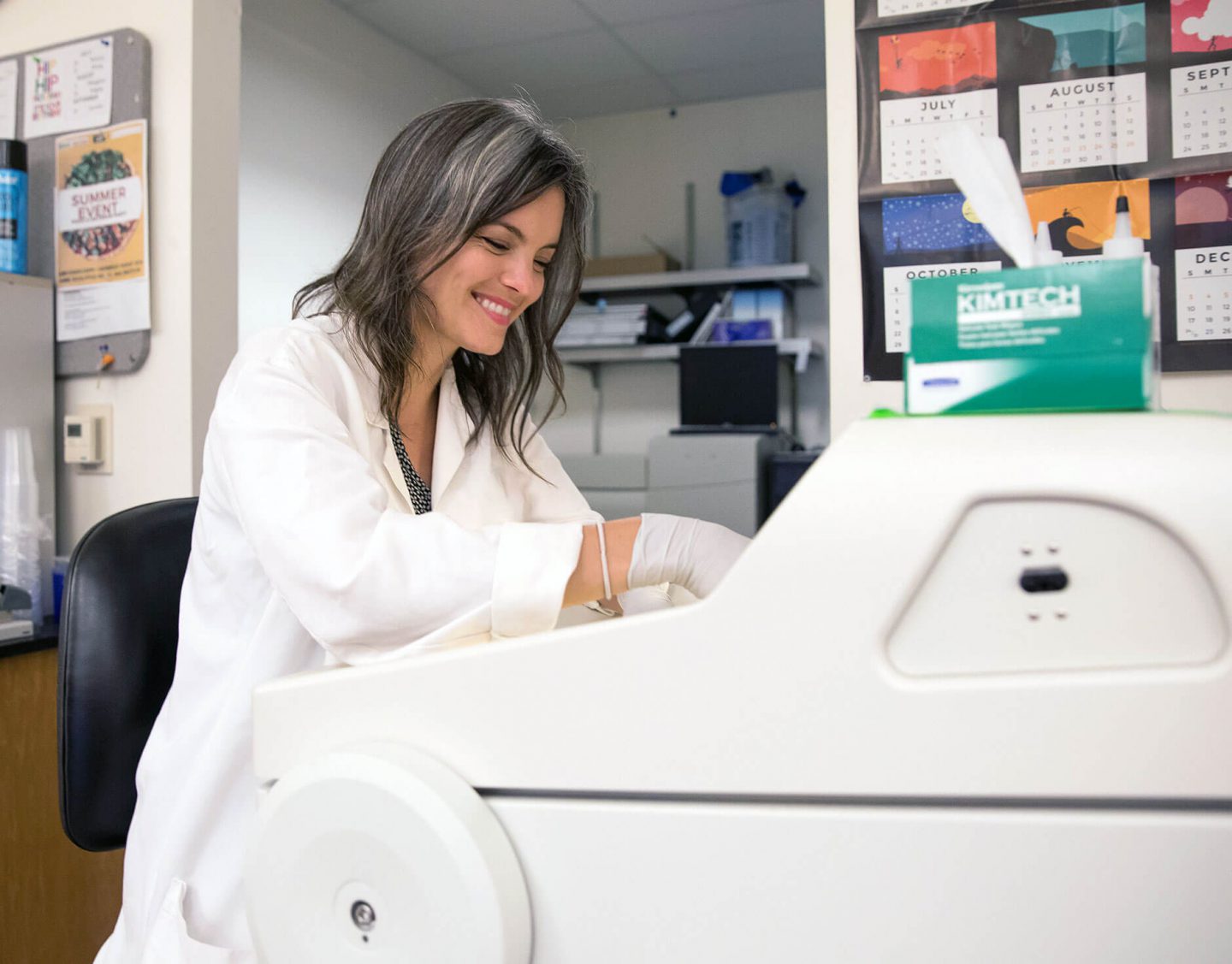Outsmarting Outbreaks
At Scripps Research, we’re developing super-powered vaccines and therapeutics against HIV, flu and other deadly viruses.
Viruses present a formidable challenge to human health.
Get CuriousOur researchers, employing scientific talent and ingenuity, are turning the tables on pathogens.
Ever wondered why flu vaccines don’t always protect you from the flu? Or why more than three decades after the cause of AIDS was first identified, there is still no approved vaccine for HIV?
The simple answer: some viruses are especially tricky. Like criminals donning disguises to escape the police, certain viruses can rapidly change their appearance, evading detection and eradication. Now, however, we are closing in on them.
At Scripps Research, we are designing and testing a new class of vaccines and drugs to defeat the most evasive and deadly pathogens on Earth. Our strategy is based on a class of immune system proteins that possess a kind of superpower: the ability to inactivate a remarkably wide range of virus strains.
Scripps Research scientists recently reported engineering a prototype of a broadly neutralizing flu therapy that protected mice from multiple strains of influenza known to affect humans. And working with the international AIDS Vaccine Initiative (IAVI), we helped launch two clinical trials to test vaccines developed by Scripps Research scientists and their collaborators. We’ve made tremendous headway in the pursuit of these “universal” therapies that could save millions of lives worldwide.

Talent and Technologies Defeat Disease
-
Fighting the Flu
An experimental drug developed at Scripps Research protects against numerous strains of influenza virus.
-
Outwitting Mutations
We’re applying our expertise in developing therapies against fast-mutating viruses to also target malaria.
-
Imaging Atoms
Our state-of-the-art imaging technologies allow us to see pathogens and therapies interact at the atomic level.
-
Feats of Engineering
We reengineered human white blood cells to produce antibodies that disable HIV, which could lead to novel vaccines.